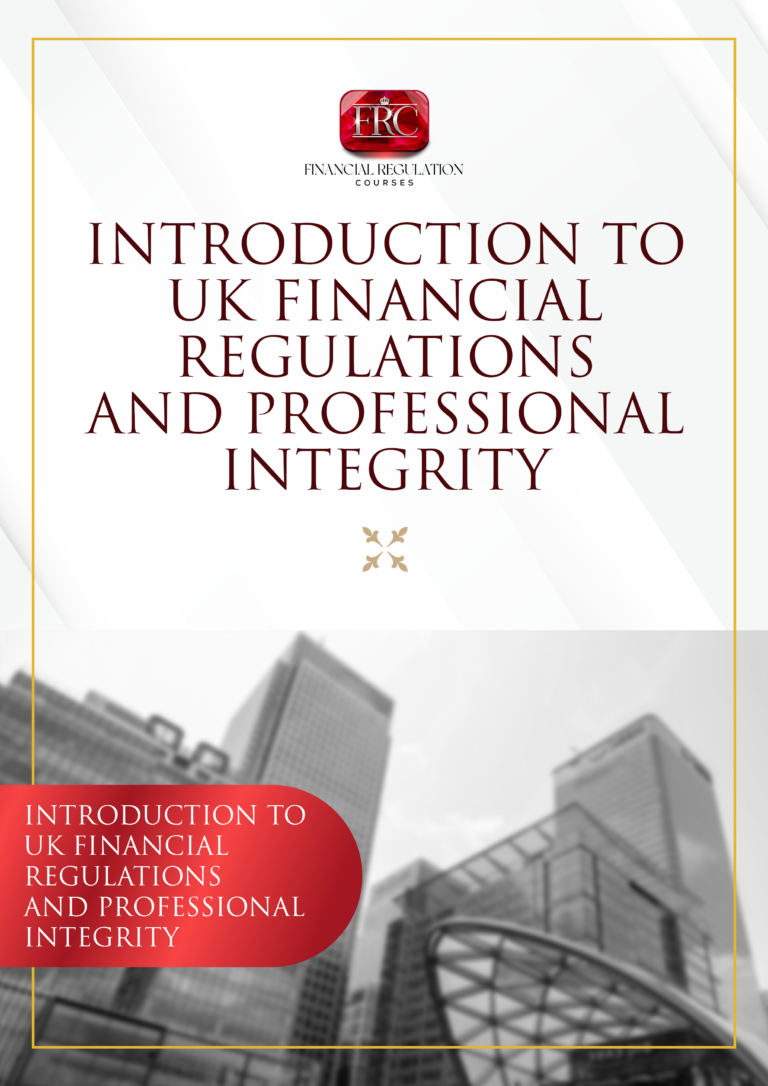Exam Guide
The certification exam for the Introduction to UK Financial Regulations and Professional Integrity validates your knowledge and expertise in this critical area. This guide provides everything you need to navigate the process with ease, from preparation to successful completion.

Flawlessly Refining Careers

Certification Standards
Exam Format and Passing Criteria
- Assessment Structure: The exam includes multiple-choice questions (MCQs) and scenario-based evaluations to test your practical understanding of financial regulations.
- Passing Score: A minimum of 80% is required on all assessments to demonstrate subject mastery.
- Progression: Modules must be completed in sequence, ensuring a thorough grasp of key concepts before moving forward.
Certification Process
- Identity Verification: A secure KYC process ensures the authenticity of your certification.
- Digital Certification: Upon passing, you’ll receive a shareable digital certificate, ideal for professional use.
- Employer Verification: Employers can instantly verify your certification status through our platform, enhanci trust and transparency.
KYC Verification Process

Identity Verification for the Introduction to UK Financial Regulations and Professional Integrity
At Financial Regulation Courses, we uphold the highest standards of integrity by implementing a robust Know Your Customer (KYC) verification process. For a fee of just £29.99, this essential step ensures that certifications earned through the Introduction to UK Financial Regulations and Professional Integrity course genuinely reflect expertise and professionalism.
Our KYC process verifies the identity of every exam taker, safeguarding the credibility of our certifications. This provides financial institutions and employers with confidence in the skills and knowledge our students demonstrate. By adding this layer of trust, your certification enhances your professional reputation and sets you apart as a credible and distinguished candidate in the financial sector.
Multiple Choice Exams
Mastering Assessments with the MCQ Format at Financial Regulation Courses
At Financial Regulation Courses, we utilise the Multiple-Choice Question (MCQ) format as a powerful method for evaluating student expertise. This format not only fosters strong exam performance but also immerses learners in practical, real-world scenarios relevant to the financial industry.
The MCQ approach challenges students to apply critical thinking and make informed decisions by navigating realistic situations faced by professionals. It deepens understanding of financial regulations, ethical practices, and risk management, ensuring students are equipped to handle industry complexities with confidence.
With its structured and scenario-driven design, the MCQ format prepares students to translate their knowledge into actionable skills, enhancing both their professional competence and career readiness. Unlock your potential and excel with Financial Regulation Courses through this innovative assessment method!
Exam Booking Guidelines
Ensuring Exam Integrity with Advanced Proctoring at Financial Regulation Courses
At Financial Regulation Courses, we prioritise exam integrity by employing state-of-the-art facial recognition proctoring technology. This system monitors your screen activity, eye movements, and any open browser tabs throughout the exam to uphold strict testing standards. As a closed-book exam, any breach of these rules will result in immediate disqualification.
We encourage all students to familiarise themselves with our exam policies to avoid misunderstandings. For any queries or concerns, our dedicated Student Liaison Team is available via live chat with a real advisor from 9 am to 5 pm, or you can reach out to us directly by phone.
Our commitment to professional integrity extends to every aspect of the certification process. By adhering to these guidelines, you contribute to maintaining the credibility of your certification, ensuring it remains a respected and valuable credential within the financial industry.
